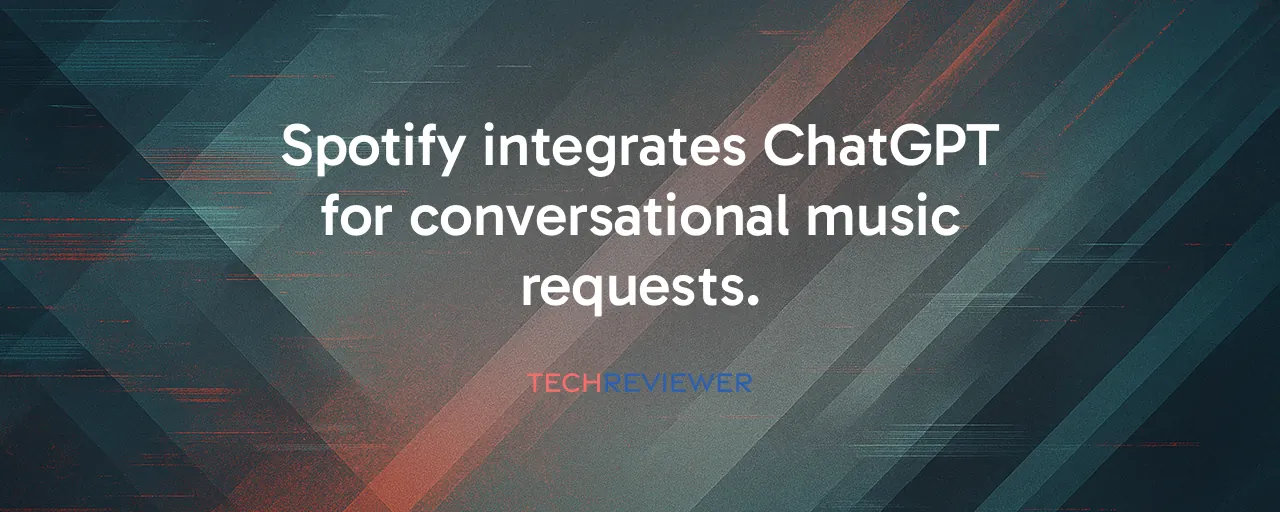A New Way to Find Your Soundtrack
You're chatting about your weekend plans, and in the same breath, you ask for a playlist to match your hiking vibe. Spotify's new integration with ChatGPT, launched on October 6, 2025, makes that possible. Weaving music discovery into everyday conversations, this feature lets users request songs, albums, or podcasts without breaking their flow. Available in 145 countries for ChatGPT's 800 million users, it's a bold step toward making music a natural part of digital interactions. No need to open Spotify's app; just type your mood or activity, and personalized recommendations appear, ready to play with a tap.
This setup relies on OpenAI's Apps SDK, a tool that lets developers embed apps directly into ChatGPT's interface. Spotify users, whether Free or Premium, can connect their accounts to unlock tailored suggestions based on their listening history. Premium subscribers get the added perk of custom playlists built from detailed prompts, like 'upbeat jazz for a rainy evening.' Free users, meanwhile, tap into Spotify's curated lists, such as Discover Weekly. It's a smooth experience, but it raises questions about how this shift affects the way we find and enjoy music.
Lessons From Spotify and YouTube Music's AI Ventures
Spotify isn't alone in betting on AI to redefine music discovery. YouTube Music's recent foray into AI-generated DJ features, tested in September 2025, offers a useful comparison. While Spotify's ChatGPT integration focuses on conversational ease, YouTube Music pairs AI commentary with curated tracks, aiming for a radio-like experience. Spotify's earlier AI DJ, launched in 2023, already showed younger listeners warming to AI-curated music with voiceovers. Yet, YouTube's approach has stumbled, with some users finding its AI interjections disruptive rather than engaging, according to early feedback.
Both platforms reveal key lessons. Spotify's conversational approach reduces friction, letting users stay in one interface while exploring music. YouTube's DJ experiment, however, suggests AI must blend seamlessly to avoid feeling intrusive. For Spotify, the challenge is ensuring recommendations match the quality of its in-app algorithms, which power features like Daily Mix and handle half a trillion daily events. YouTube's struggle highlights the need for precision in AI's role, balancing personality with restraint to keep listeners hooked.
Artists in the Algorithmic Spotlight
For musicians, this integration is a double-edged sword. Spotify's 600 million users now have a new way to discover music, potentially boosting exposure. But algorithmic recommendations, as research from 2023 and 2024 shows, often favor major label artists over independents. Studies highlight that women artists and lesser-known creators get less visibility, a trend that could worsen as conversational AI prioritizes popular tracks. Independent artists, already navigating Spotify's controversial Discovery Mode from 2021, worry about being sidelined in favor of established names.
The stakes are high. With algorithms driving most music discovery for younger listeners, as industry experts note, a single recommendation can shape an artist's streaming numbers and income. Spotify's commitment to not sharing music or podcast data with OpenAI for training is a positive step, addressing artist concerns about unauthorized use. Still, the lack of transparency in how these recommendations are generated leaves creators wary, especially when conversational prompts might amplify biases in what gets surfaced.
Balancing Convenience With Privacy
The integration is a time-saver for users. Chatting about a workout and instantly getting a high-energy playlist feels effortless, especially since ChatGPT interprets nuanced requests like 'chill music for studying.' Yet, this convenience comes with trade-offs. Linking Spotify and ChatGPT accounts raises privacy questions, as listening habits combine with conversational data. Spotify's clear stance against sharing content for AI training helps, but users still need to trust both platforms to handle their data responsibly. The opt-in connection process gives control, yet the multi-party setup blurs who's accountable for security.
Regulatory hurdles also loom. The feature's absence in the European Union, due to strict data privacy laws like GDPR, underscores the complexity of cross-platform integrations. Users elsewhere must weigh the benefits of seamless discovery against the risk of detailed behavioral profiling. As conversational AI becomes a cultural gatekeeper, balancing ease with transparency will be crucial to maintaining trust.
What's Next for Music in a Conversational World
Spotify's move signals a broader shift. As conversational AI platforms like ChatGPT evolve into hubs for services, music discovery is becoming ambient, woven into daily digital routines. Industry analysts predict that within a few years, most music interactions could happen through chat or voice interfaces, especially among younger users already comfortable with AI assistants. OpenAI's Apps SDK, built on an open standard, hints at a future where other platforms might adopt similar integrations, potentially creating a unified way to access music across AI ecosystems.
Still, challenges remain. Ensuring niche or complex requests yield accurate results requires ongoing tweaks, as early feedback suggests some prompts fall short. Artists and labels will need new strategies to stand out in this conversational landscape, where traditional playlist pitching may not apply. For users, the promise of effortless discovery is compelling, but it risks narrowing musical horizons if algorithms lean too heavily on familiar picks. As Spotify and OpenAI refine this integration, its success will hinge on delivering both convenience and diversity.
